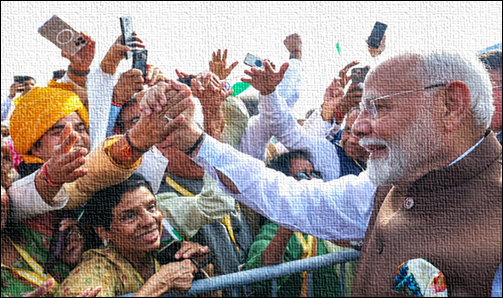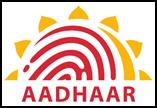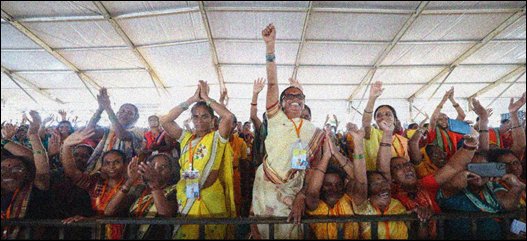Ministry of Information & Broadcasting
India's Path to a Viksit Bharat
Empowering citizens through Good Governance and Digitalisation
Posted On:
23 DEC 2024 5:11PM by PIB Delhi
‘Ease of Living is the right of every citizen. That is why, furthering it has been the priority of our Government’
~ Prime Minister Shri Narendra Modi
United Nations (UN) describes Good Governance as the governance which is participatory, consensus oriented, accountable, transparent, responsive, effective and efficient, equitable and inclusive and follows the rule of law. One major goal of good governance is ensuring the citizens' inclusion. Inclusivity is built through citizen participation in governance processes and consensus building, ensuring equality, and maintaining accountability, transparency, and responsiveness by the government. It is all about ensuring the citizens' ease of living.

Source: https://www.mygov.in/campaigns/mann-ki-baat/
‘Ease of Living’, a key pillar of India’s Good Governance endeavour, is a framework for assessing the improved well-being of citizens since the end goal of development is to improve liveability. Through simplified processes, advanced technology, and citizen-first policies, this vision ensures that the benefits of good governance reach every individual, even in the most remote corners of the nation.
In the quest to achieve ‘ease of living’ for citizens, digitalisation has been a game-changer. It has been crucial for ensuring good governance and inclusivity, i.e., enhancing transparency, efficiency, and accessibility, empowering individuals to lead dignified and fulfilling lives.
 A shining example of this comes from the story of Mr. Sureshbhai Patel. Mr. Patel is a small farmer hailing from Dadra and Nagar Haveli and Daman Diu. One day, he was asked by his child’s school to submit his income certificate. Perplexed and having no information about the government processes, he had to spend a lot of money and time in his efforts to obtain a certificate from the local authorities. In his search, he came across the Saral Sewa Kendra (SSK) at his village panchayat office. The operator at SSK explained the entire process to him and helped him obtain not only his income certificate but also his child's birth certificate. He received an SMS informing him about form submissions, approvals, and certificate generation. As a result of this, his child received a scholarship from the school due to timely document submission.
A shining example of this comes from the story of Mr. Sureshbhai Patel. Mr. Patel is a small farmer hailing from Dadra and Nagar Haveli and Daman Diu. One day, he was asked by his child’s school to submit his income certificate. Perplexed and having no information about the government processes, he had to spend a lot of money and time in his efforts to obtain a certificate from the local authorities. In his search, he came across the Saral Sewa Kendra (SSK) at his village panchayat office. The operator at SSK explained the entire process to him and helped him obtain not only his income certificate but also his child's birth certificate. He received an SMS informing him about form submissions, approvals, and certificate generation. As a result of this, his child received a scholarship from the school due to timely document submission.
Digitalisation is at the heart of this revolution and is pivotal in reshaping governance. Take the example of the Digital India Land Records Modernization Programme (DILRMP), which has digitized 95% of land records in rural India. In a country where land ownership was often a source of conflict and uncertainty, digitalisation has brought much-needed clarity and fairness to millions of citizens. This shift has not only enhanced transparency but has also simplified land management, reduced fraud and enabled quicker dispute resolution.
 Similarly, platforms like myScheme offer a digital one-stop solution for citizens to easily discover and apply for government schemes that match their eligibility. Gone are the days of navigating multiple government websites or dealing with complicated application processes. With myScheme, accessing the right benefits has become as simple as a few clicks, empowering citizens with the information they need to improve their lives.
Similarly, platforms like myScheme offer a digital one-stop solution for citizens to easily discover and apply for government schemes that match their eligibility. Gone are the days of navigating multiple government websites or dealing with complicated application processes. With myScheme, accessing the right benefits has become as simple as a few clicks, empowering citizens with the information they need to improve their lives.
 Aadhaar is another critical enabler of India's governance transformation, deeply embedded in the lives of citizens. With over 2,240 social welfare schemes using Aadhaar, it ensures secure and efficient delivery of benefits, enhancing transparency and promoting the ‘Ease of Living’. Its reach extends to over 500 entities in banking, insurance, and telecom, simplifying user authentication. Aadhaar's use across both public and private sectors reduces fraud, ensuring secure and seamless access to services and making governance more efficient and transparent.
Aadhaar is another critical enabler of India's governance transformation, deeply embedded in the lives of citizens. With over 2,240 social welfare schemes using Aadhaar, it ensures secure and efficient delivery of benefits, enhancing transparency and promoting the ‘Ease of Living’. Its reach extends to over 500 entities in banking, insurance, and telecom, simplifying user authentication. Aadhaar's use across both public and private sectors reduces fraud, ensuring secure and seamless access to services and making governance more efficient and transparent.
The portal further highlights the government’s commitment to digital governance. Part of the iGOT platform, Amrit Gyaan Kosh is a comprehensive digital resource that curates best practices in governance, aligned with the Sustainable Development Goals (SDGs). With resources available in Hindi and Braille, this initiative ensures that knowledge and training are accessible to all, enhancing the capacity of public administrators and improving governance at the grassroots level.

 In education, the APAAR ID (Automated Permanent Academic Account Registry) and empower students across India by enabling smooth academic transitions and recognising prior learning. With over 34 crore APAAR IDs registered, students now have a digital identity that facilitates easy credit recognition, improving educational opportunities and outcomes.
In education, the APAAR ID (Automated Permanent Academic Account Registry) and empower students across India by enabling smooth academic transitions and recognising prior learning. With over 34 crore APAAR IDs registered, students now have a digital identity that facilitates easy credit recognition, improving educational opportunities and outcomes.
Furthermore, the government's commitment to inclusivity is evident in its efforts to bring digital connectivity to even the most remote areas of India. India is leading the charge in the adoption of 5G technology, marking a significant milestone in its digital transformation journey. With over 95% 4G coverage and 90% 5G coverage and affordable services driving accessibility, the country is witnessing an unprecedented surge in subscriptions. Key sectors such as manufacturing, retail, healthcare, and agriculture will benefit from 5G, enabling new operating models, improved efficiency, and innovative services like smart cities and digital governance. These efforts create new opportunities for citizens to engage with government services, access information, and participate in the digital economy.

Source: https://x.com/narendramodi/status/1827684180504768671/photo/2
Prime Minister Modi’s PRAGATI (Pro-Active Governance And Timely Implementation) platform strengthens governance by enabling real-time monitoring of projects worth over ₹18 lakh crore, ensuring they progress smoothly and on time. The Aspirational Districts Program is another example of how digital tools transform governance, turning backward regions into success stories by addressing local challenges and promoting inclusive growth.
Through these initiatives, India is not just building infrastructure but creating a framework for good governance that enhances the Ease of Living for its citizens and ensures the principle of Inclusivity in practice. By embracing digitalisation and inclusive policies, the government ensures that every Indian has access to better opportunities. As India moves toward its vision of Viksit Bharat 2047, its focus on governance, digitalisation, and Ease of Living transforms lives, creating a more transparent, accessible, and self-reliant nation.
References
https://pib.gov.in/PressReleaseIframePage.aspx?PRID=2077671
https://x.com/narendramodi/status/1861455101204013360
https://pib.gov.in/PressReleasePage.aspx?PRID=2082392
https://myscheme.gov.in
https://www.uidai.gov.in//images/Aadhaar__Brochure__2024.pdf
https://rural.gov.in/en/press-release/95-land-records-rural-india-digitized
https://www.unescap.org/sites/default/files/good-governance.pdf
https://www.meity.gov.in/writereaddata/files/75-DI-Success-Stories.pdf
https://pib.gov.in/FeaturesDeatils.aspx?NoteId=153402&ModuleId+=+2®=3&lang=1
https://pib.gov.in/PressReleasePage.aspx?PRID=2083735
Click here to download PDF
*****
Santosh Kumar/ Ritu Kataria/ Kamna Lakaria/ Rishita Aggarwal
(Release ID: 2087312)
Visitor Counter : 1690